In a world where democracy is increasingly being tested, Brazil has become a crucial stage for a symbolic clash. Recently, Paulista Avenue, the economic heart of São Paulo, was the scene of two opposing events that capture the essence of the country’s polarization.
In one event, supporters of former President Jair Bolsonaro called for amnesty for the “rioters” of the January 8 attack, those who invaded and vandalized the buildings of the Three Powers in the capital, Brasília, in an attempted coup d’état.
In another instance, defenders of democracy, in a more organic and subtle manner, demonstrated against this same amnesty and a Proposed Constitutional Amendment (PEC) that would shield politicians from investigations, showing that organized civil society is attentive to regressive movements.
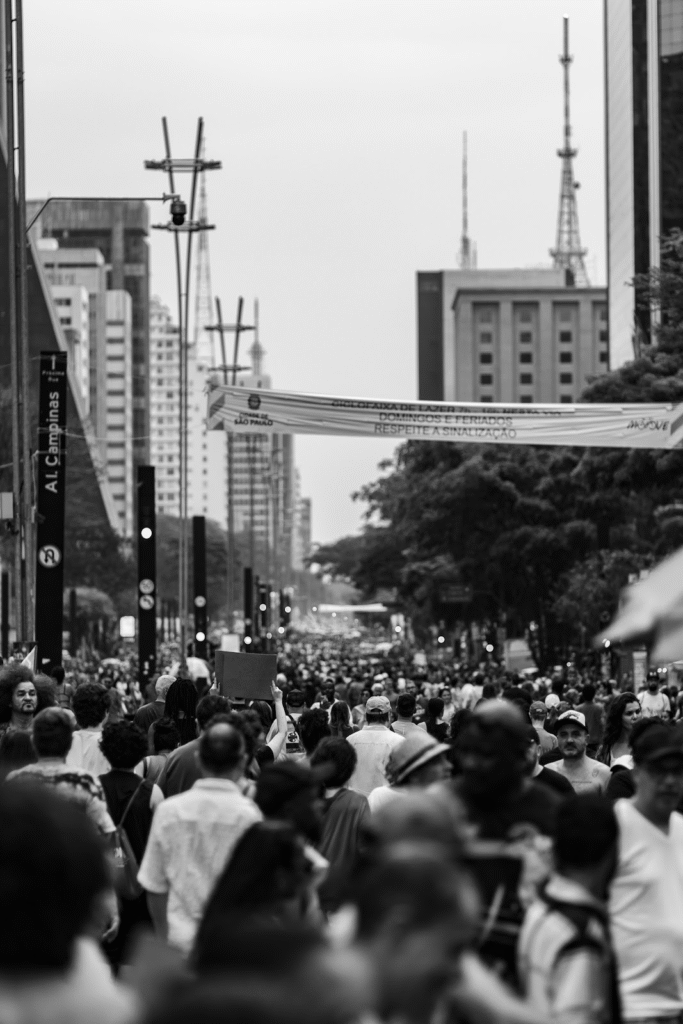

The difference between the two groups, however, is deeper than simple political disagreement; it is rooted in a historical distortion that echoes the nation’s darkest times.
Reversed history
The main banner of Bolsonaro’s supporters is amnesty for those who participated in the January 8th protests — particularly Bolsonaro, who was sentenced to 27 years in prison for attacks on democracy. The narrative propagated is that they deserve the same pardon that was granted to political prisoners and exiles during the military dictatorship (1964–1985).
This comparison is not only fallacious but dangerously distorted. In 1979, the Amnesty Law was a historic achievement of social movements and the opposition. Pardon was granted to those who fought for freedom and against the oppression of an authoritarian regime. They were the victims of the state, the defenders of democracy.
The amnesty was, therefore, a victory for civil society against dictatorial power. Today, the request for amnesty is for the invaders and coup plotters, for those who attacked democratic institutions. It is the exact opposite. It is not about forgiving those who fought for freedom, but about absolving those who tried to destroy it.
To understand the gravity of the situation, one must look beyond the headlines. The pro-amnesty demonstration, led by the former president, took place on September 7, the date that celebrates Brazil’s independence from Portugal.
However, in a scene that shocked many Brazilians, a giant US flag was unfurled in the middle of the crowd. This act, more than a mere show of support, is a glaring contradiction. The search for help and identification with a foreign superpower on the day of national independence reflects a departure from any real patriotism, suggesting loyalty to external ideals that do not align with Brazil’s sovereignty.
In contrast, the demonstration against amnesty, which gathered to defend democracy, proudly displayed the Brazilian flag, symbolizing the defense of the nation and its institutions. It was a milestone for a country that has become divided, especially due to the actions of former President Jair Bolsonaro in recent years.
The desperate movement
In the theater of global politics, few scenes are as strange and revealing as that of a Brazilian congressman seeking diplomatic help in Washington. Recently, in an unprecedented move, Congressman Eduardo Bolsonaro traveled to the United States in an attempt to pressure the American government to intervene in the legal situation of his father, Jair Bolsonaro.
The goal was clear and bold: to avoid the former president’s conviction and force political amnesty through the veiled intimidation of American figures such as President Donald Trump. But what this strategy ultimately revealed was the fragility of a political movement and the resilience of Brazil’s democratic institutions.
The narrative being promoted is that Jair Bolsonaro is a victim of political persecution. The argument, repeated ad nauseam, is that he deserves the same amnesty granted to opponents of Brazil’s 1964 military dictatorship. This historical farce that the congressman tried to export has already been explained above. The attempt to equate the two scenarios does not hold up in any court of reason or history. Eduardo Bolsonaro’s trip was merely an attempt to give international weight to a fallacious narrative, presenting his father not as a defendant, but as a political martyr.
Eduardo Bolsonaro’s plan was simple but naive: to pressure the Brazilian judicial system through Donald Trump’s influence. The congressman participated in closed-door meetings, made public appearances and gave interviews in the hope that the weight of US conservative politics would intimidate Brazilian institutions. But the plan, in practice, fell apart.
Brazil’s legal and judicial system, in a demonstration of its independence and strength, followed its course. The Supreme Court and judicial bodies did not allow themselves to be influenced by external pressures, whether they came from demonstrations on Paulista Avenue or from political corridors in Washington. The condemnation of Jair Bolsonaro for his anti-democratic acts is clear proof that this strategy failed.
Eduardo Bolsonaro’s bold move to seek the support of a foreign leader in an attempt to reverse an internal Brazilian decision evaporated on Tuesday (September 23) during the UN General Assembly, when Trump said that the Brazilian president is “a nice guy” and that the two leaders should meet soon, without specifying how or where.
Current Brazilian President Luiz Inácio Lula da Silva responded that he hopes the possible meeting will take place “soon,” “like two civilized human beings,” and without “room for jokes.” Responding to a question from BBC News Brasil about whether he fears any kind of “embarrassment,” Lula said he is “very optimistic about the meeting.” “Trump turns 80 in June next year. I turn 80 in October this year. There is no reason for joking around in a relationship between two 80-year-old men. I will treat him with the respect he deserves as president of the United States, and he will certainly treat me with the respect I deserve as president of the Federative Republic of Brazil.”
Democracy in turmoil
It served as a reminder of how fragile some views of sovereignty can be. By seeking the intervention of a leader from another country, Eduardo Bolsonaro not only exposed the weakness of his own movement but also disrespected the principle that Brazil should resolve its own problems according to its own laws.
In the end, the trip and the attempts at intimidation did not result in amnesty or acquittal for his father. Instead, they served to demonstrate the strength of Brazilian democracy, which remained steadfast. This lesson, both for Brazil and the rest of the world, is a reminder that justice and the law must prevail over show diplomacy and blind family loyalty.
The coup movement, despite not being immediately successful, left deep scars. The attempt to delegitimize the elections, constant political instability and the denial of scientific and historical facts are symptoms of a broader crisis.
Economically, the climate of uncertainty drives away investment and undermines stability. Socially, the fabric of the nation is frayed, with families and friends divided by political lines that seem insurmountable. The current struggle is not only for freedom, but for a basic understanding of what reality is and respect for the rules of the democratic game.
The approval of an amnesty would be a dangerous signal, a testament that impunity for anti-democratic acts is possible, opening the door to future coup attempts.

Brazil in 2025 is at a crucial moment. Resistance to amnesty is not just a reaction to an act of violence, but an active defense of the future. Civil society, the independent press and democratic institutions, such as the Supreme Court, are being tested.
The lesson that Brazil can offer the world is that democracy is not something that can be taken for granted. It needs to be defended, valued and, above all, understood. The history of 1979 shows us that forgiveness is for those who fight for freedom, not for those who try to imprison it.
Today’s battle is to ensure that history does not repeat itself in reverse, with the executioners being treated as heroes and the defenders of the law as enemies. It is a global call for vigilance.

[Kaitlyn Diana edited this piece.]
The views expressed in this article are the author’s own and do not necessarily reflect Fair Observer’s editorial policy.
Support Fair Observer
We rely on your support for our independence, diversity and quality.
For more than 10 years, Fair Observer has been free, fair and independent. No billionaire owns us, no advertisers control us. We are a reader-supported nonprofit. Unlike many other publications, we keep our content free for readers regardless of where they live or whether they can afford to pay. We have no paywalls and no ads.
In the post-truth era of fake news, echo chambers and filter bubbles, we publish a plurality of perspectives from around the world. Anyone can publish with us, but everyone goes through a rigorous editorial process. So, you get fact-checked, well-reasoned content instead of noise.
We publish 3,000+ voices from 90+ countries. We also conduct education and training programs
on subjects ranging from digital media and journalism to writing and critical thinking. This
doesn’t come cheap. Servers, editors, trainers and web developers cost
money.
Please consider supporting us on a regular basis as a recurring donor or a
sustaining member.
Will you support FO’s journalism?
We rely on your support for our independence, diversity and quality.


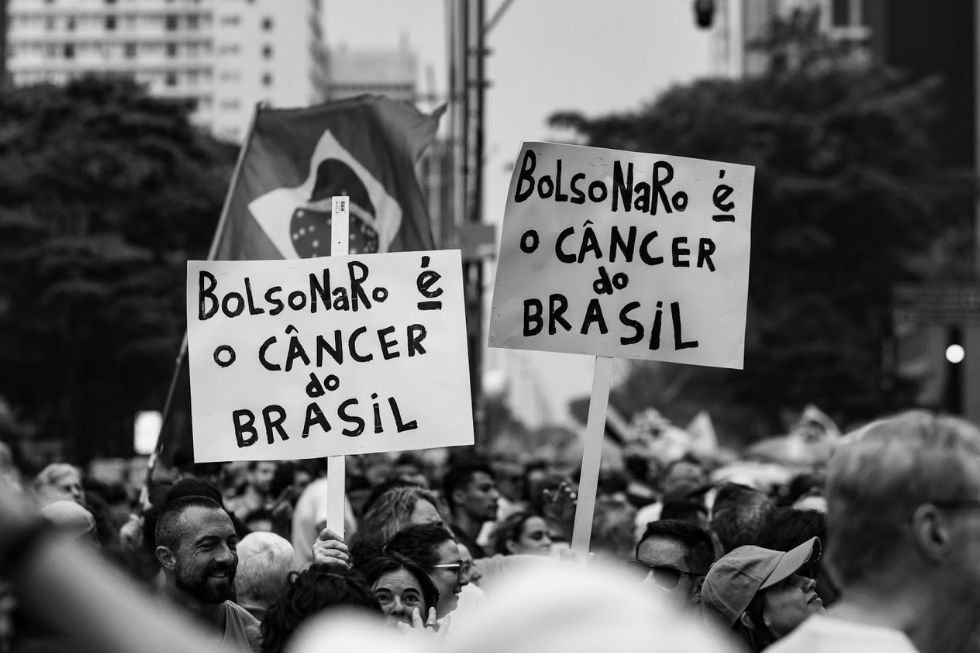
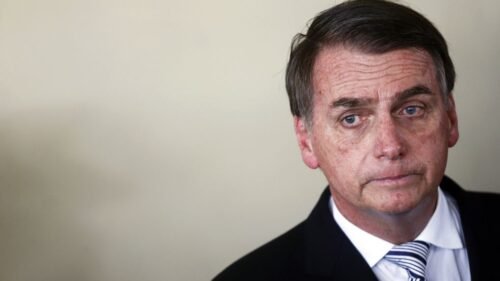
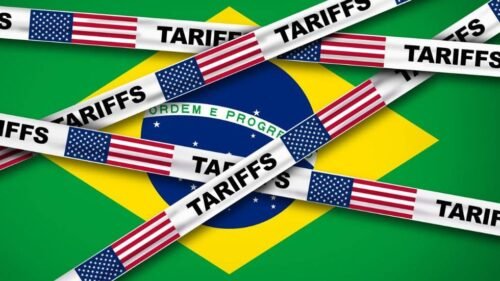
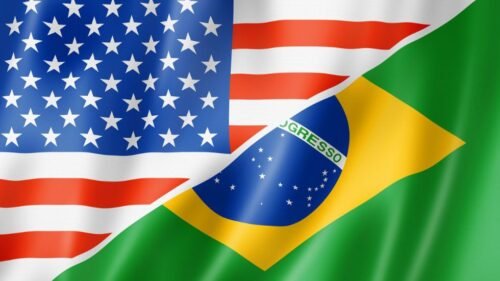


Comment